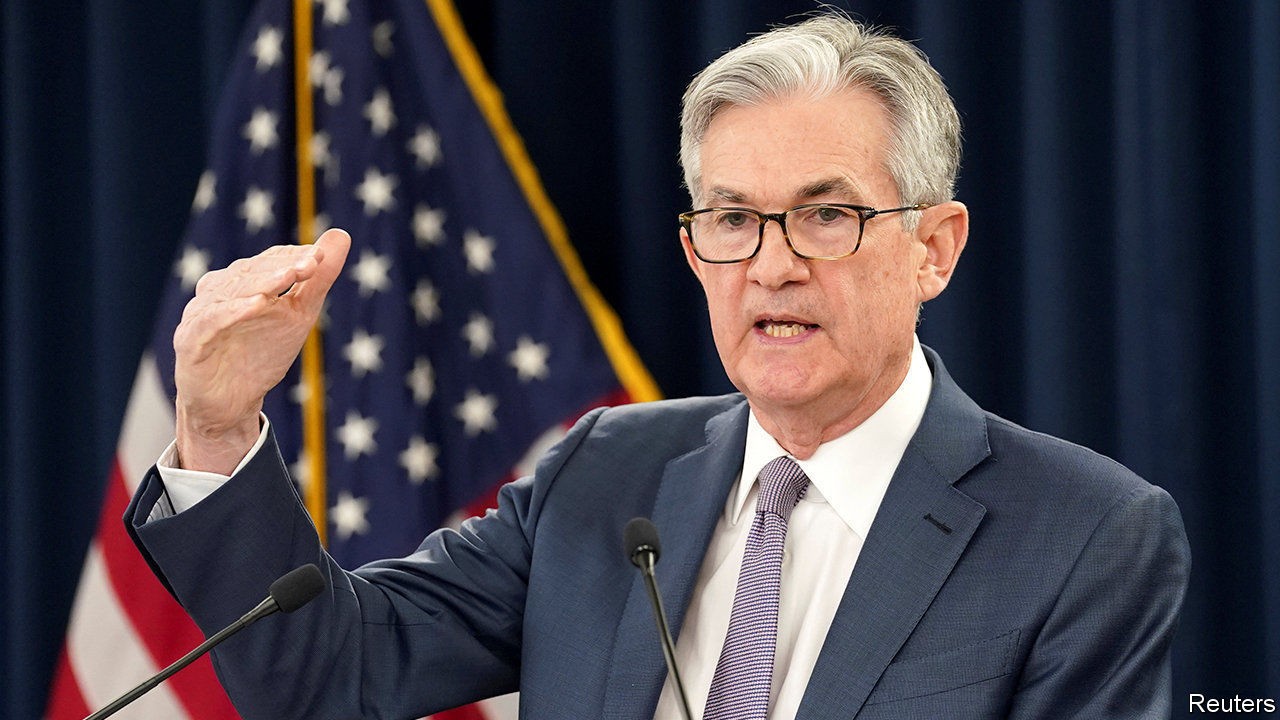Fri Apr 22, 2022
Friday / April 22
Powell speaks on rates
US Federal Reserve Chairman Jerome Powell affirmed the central bank’s determination to bring down inflation and said Thursday that aggressive rate hikes are possible as soon as next month.
“It is appropriate in my view to be moving a little more quickly” to raise interest rates. I also think there is something to be said for front-end loading any accommodation one thinks is appropriate. I would say 50 basis points will be on the table for the May meeting.” Powell was speaking at an International Monetary Fund panel.
Powell’s statements essentially meet market expectations that the Fed will depart from its usual 25 basis point hikes and move more quickly to tame inflation that is running at its fastest pace in more than 40 years. A basis point equals 0.01 percentage point.
Expectations for a 50-basis point move in May rose to 97.6%, according to the CME Group’s FedWatch Tool.
“Our goal is to use our tools to get demand and supply back in synch, so that inflation moves down and does so without a slowdown that amounts to a recession,” Powell said. “I don’t think you’ll hear anyone at the Fed say that that’s going to be straightforward or easy. It’s going to be very challenging. We’re going to do our best to accomplish that.”
“It’s absolutely essential to restore price stability,” he added. “Economies don’t work without price stability.”
US stocks
Stocks fell Thursday in a sharp reversal, as a jump in Treasury yields offset the optimism coming from another batch of solid corporate earnings.
The Dow Jones Industrial Average traded lower by 368.03 points, or 1.05%, to close at 34,792.76. The S&P 500 dropped 1.48% to 4,393.66, and the Nasdaq Composite slid 2.07% to 13,174.65.
Treasury yields were up sharply on the day, with the benchmark 10-year rate trading above 2.9% for much of the session — near its highest level since late 2018.
Putin's first victory announcement
Russian President Vladimir Putin claimed victory on Thursday in the biggest battle of the Ukraine war, declaring the port city of Mariupol "liberated," although hundreds of Ukrainian troops and civilians were still holding out inside a giant steel works.
The United States disputed Putin's claim and said it believed Ukrainian forces still held ground in the city. Putin ordered his troops to blockade the steel complex, where Ukrainians were told earlier to either surrender or die.
Ukraine said Putin wanted to avoid a final clash with its forces in Mariupol, as he lacked troops to defeat them. But Ukrainian officials also appealed for help to evacuate civilians and wounded soldiers.
In a televised meeting at the Kremlin, Putin congratulated his defence minister and Russian troops for having "successfully completed the combat effort to liberate Mariupol".
He said it was unnecessary to storm the industrial zone containing the Azovstal steel plant.
"There's no need to climb into these catacombs and crawl underground through these industrial facilities... Block off this industrial area so that not even a fly can get through," Putin said.
Mariupol, a major port in Ukraine's eastern Donbas region, sits between areas held by Russian separatists and Crimea, the Black Sea peninsula Moscow seized in 2014. Capturing the city would allow Russia to link the two areas as it intensifies its offensive in Ukraine's east.
"They can only postpone the inevitable - the time when the invaders will have to leave our territory, including from Mariupol, a city that continues to resist Russia regardless of what the occupiers say," Ukraine's President Volodymyr Zelenskiy said.
Food inflation
Nestlé, the world's biggest food and drinks company, raised prices by more than 5% in the first three months of this year as it passed on rising costs to shoppers.
Consumers in North America took the hardest hit, with an 8.5% rise in prices, the company said in its first-quarter earnings report Thursday. Latin America saw the second-biggest increase, with the price of Nestlé products rising 7.7%.
CEO Mark Schneider signaled that more increases are on the horizon.
"We [have] stepped up pricing in a responsible manner and saw sustained consumer demand," he said in a statement. "Cost inflation continues to increase sharply, which will require further pricing and mitigating actions over the course of the year."
Global inflation is soaring. Consumer price inflation in the United States hit 8.5% in March, a 40-year high. In Europe it stands at 7.5%, its highest level since the European Union started collecting data about 25 years ago.
